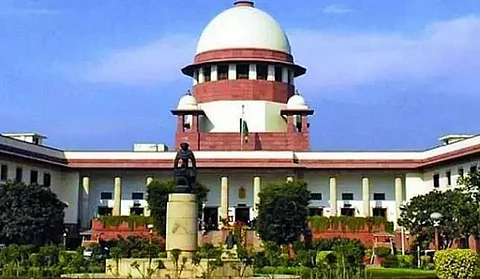
- Home
- Live Blog
- Breaking News
- Top Headlines
- Cities
- NE News
- Sentinel Media
- Sports
- Education
- Jobs

NEW DELHI: The Rajasthan High Court's Friday order on the rebel Congress MLAs' plea resembled the Supreme Court's observations on the matter, while framing a bunch of question on intra-party dissent, freedom of expression, dissatisfaction against the party leadership and whether 'whip', as an instrument of party discipline, only applies for actions expected out of legislators inside the house.
On Thursday, a apex court bench of Justice Arun Mishra, Justice B.R. Gavai and Justice Krishna Murari asked senior advocate Kapil Sibal, representing Rajasthan Assembly Speaker C.P. Joshi, "Voice of dissent cannot be suppressed ... then democracy will shut. After all they have been elected by the people. Can they not express their dissent?"
On Friday, the Rajasthan High Court, in its 32-page verdict, framed 13 questions for consideration, and most of them are on the lines of stifling of dissent and intra-party democracy, as observed by the apex court. The High Court has said the writ petitions are maintainable, dismissing the preliminary objections by the Speaker, though it has not given any date to take up the matter.
The High Court also ordered the status quo to be maintained in the disqualification case against former Deputy Chief Minister Sachin Pilot and 18 other rebel Congress MLAs, thus, barring the Speaker from acting on the July 14 notices.
In the case of whip, the apex court wondered whether a valid whip can be issued to attend a party meeting. "Is whip valid only for attending Assembly or for a meeting outside?" it said. The Rajasthan High Court, in its verdict, asked: "Whether 'whip' as an instrument of party discipline only applies for actions expected out of legislators inside the House?"
The High Court has also asked if the 1992 verdict of the apex court in Kihoto Hollohan vs. Zachillhu has tested the constitutionality of Paragraph 2(1) (a) of the Constitution's Tenth Schedule only with the touchstone of "crossing over" or "defection" and the court was never called upon to answer the question of intra-party dissent?
The High Court said: "Whether, in the facts and circumstances of the present case, Paragraph 2(1)(a) of the Tenth Schedule of the Constitution, is violative, in particular to the basic structure of the Constitution of India including the fundamental right of freedom of expression guaranteed by Article 19(1)(a) of the Constitution of India and thus void?"
It also raised a critical issue, whether the expression of dissatisfaction or disillusionment and strongly-worded opinions against the party leadership can be a conduct falling within the scope of Paragraph 2(1)(a) of the Tenth Schedule.
The apex court had also asked Sibal "Is there democracy within the party or not, and isn't this a case where party members cannot raise voice against their own party?"
Framing another question, the High Court said: "Whether the notice issued by the Speaker is ex-facie violative of the essence of democracy and aims at throttling dissent against persons in power?" (IANS)
Also watch: Minister Reviews Flood Readiness for Guwahati